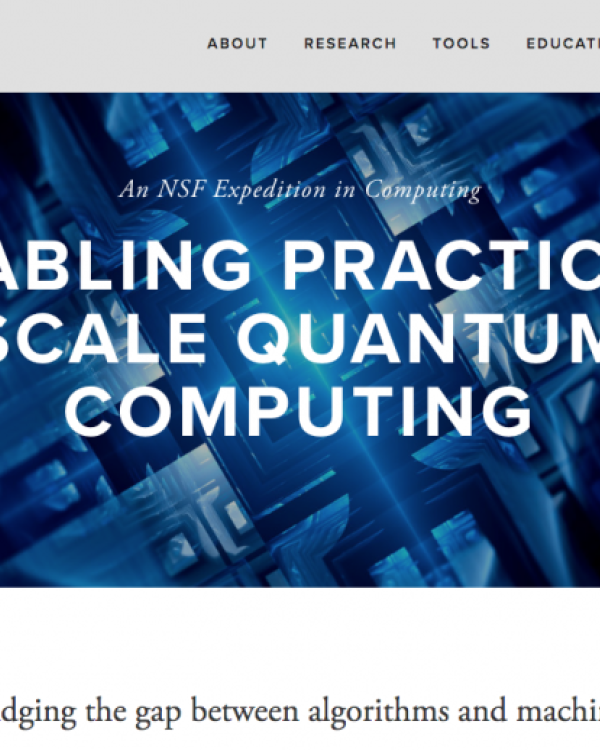
Danielle Harlow of UC Santa Barbara’s Gevirtz School will be part of a team led by computer scientists at the University of Chicago that will enable practical-scale quantum computing. This project, called EPiQC, is a multi-disciplinary collaboration across five universities that spans algorithms, software, and physical machines. EPiQC was awarded one of the National Science Foundation’s (NSF) three new Expeditions in Computing awards, each providing $10 million in funding over five years to multi-investigator research teams pursuing large-scale, far-reaching and potentially transformative research in computer and information science and engineering. Partnering institutions include the University of Chicago, Georgia Institute of Technology, Massachusetts Institute of Technology, Princeton University, and UC Santa Barbara. Fred Chong, the Seymour Goodman Professor in the Department of Computer Science at the University of Chicago, is the lead investigator on the project.
“The EPiQC Expedition will revolutionize computing through the development of practical applications of quantum computing,” Harlow explains. “As computing changes, everyone who works with computers, from elementary school children through professional engineers, will need to develop new ways of thinking about computing that include concepts such as probability and uncertainty. At UCSB, we will be helping develop the curricula and materials to revolutionize the way students think about computing.”
To prepare the U.S. workforce for this revolution in computing, citizens need to be educated to think about computing from a quantum perspective, integrating concepts such as probability and uncertainty into the digital lexicon. EPiQC will design teaching curricula and distribute exemplar materials for students ranging from primary school to engineers in industry.
Danielle Harlow is an Associate Professor in the Department of Education. Her work focuses on science and engineering education for K-12 teachers and for elementary school students. In addition to this EPiQC grant, Harlow is part of two other grants funded by the National Science Foundation. One grant focuses on developing Computer Science curriculum for upper elementary school students and studying how children learn computational thinking. The other grant focuses on how to develop undergraduate large-enrollment inquiry-based physics curricula that are aligned with the Next Generation Science Standards (NGSS).
At UCSB, Harlow teaches courses for Ph.D. students, pre-service teachers, and undergraduates. Her courses include technology and learning, physics and everyday thinking, and methods for teaching elementary school science.